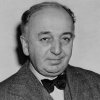Milan Mrksich has been named Northwestern University’s Vice President for Research, Interim Provost Kathleen Hagerty announced today, May 14, following a nationwide search.
Mrksich took over as interim vice president for research on October 1, 2019, well before a global pandemic struck, but his deep knowledge and understanding of the University’s research enterprise has helped him considerably in his new role.
Since the onset of the COVID-19 outbreak, the nationally known, award-winning scientist has overseen the University’s research portfolio, working with his leadership team to manage adjustments in research activity during the outbreak and to maintain essential laboratory and administrative services.
Transition back to campus
Now, as he assumes his new position as Northwestern’s vice president for research, he is planning for the transition of research back to campus. He assumes that role immediately.
Mrksich, the Henry Wade Rogers Professor at Northwestern, joined Northwestern in 2011 and has held numerous leadership positions in three colleges at the University. He will lead Northwestern’s Office for Research, which includes directing a research infrastructure with annual sponsored research funding totaling $798.3 million in 2019. He also will lead the development and implementation of University-wide strategic plans that support high-impact research initiatives. Additionally, he is a member of President Morton Schapiro’s senior staff.
“Milan has shown tremendous leadership during this unprecedented time when groundbreaking research is more important than ever,” said President Schapiro. “Right now, Milan is taking a proactive approach to intensify our research to combat COVID-19 while ensuring the University continues to uphold its rigorous, high-quality research standards.”
Mrksich has appointments in the departments of Biomedical Engineering, Chemistry and Cell & Developmental Biology at Northwestern University Feinberg School of Medicine, McCormick School of Engineering and the Weinberg College of Arts and Sciences. The nationally renowned chemist is founding director of the Center for Synthetic Biology and a leader in developing surface chemistries for a range of applications in the life sciences.
Fostering innovation
Hagerty said she is pleased Mrksich agreed to stay in the position.
“Milan has been an excellent leader, and not only will he provide important stability and continuity for our research enterprise in this unprecedented time, he will foster innovation to help ensure Northwestern remains at the forefront of transformative research and discovery,” Hagerty said.
“It’s a privilege to work with the faculty and deans to make Northwestern among the very best destinations for conducting high-impact research,” Mrksich said. “The pandemic has presented us with difficult challenges, but I am confident that our research community will emerge from this moment and continue as one of the world’s outstanding, enduring research universities.”
Mrksich joined Northwestern in 2011 from the University of Chicago, strengthening Northwestern’s presence in chemistry, nanosciences and bioengineering and giving the synthetic biology program a major lift. He worked for years to develop a technology that measures biochemical reactions at an unprecedented throughput. The technology, which he dubbed SAMDI, or self-assembled monolayers desorption ionization, addressed a significant need in early-stage drug development. The method can evaluate millions of chemicals to identify those that are active in blocking protein function and that serve as a starting point for developing drug candidates that enter clinical trials.
Founding director of Center for Synthetic Biology
With his lab, Mrksich has published more than 200 papers and presented approximately 500 invited lectures on his work. Among the awards he has earned are the Searle Scholar Award, the Sloan Research Fellowship, the Dreyfus Teacher-Scholar Award, the American Chemical Society Arthur C. Cope Scholar Award, the iCON Innovator Award and the Pittsburgh Analytical Chemistry Award. He also is a fellow of the American Institute for Medical and Biological Engineering and of the American Association for the Advancement of Science.
As founding director of the Center for Synthetic Biology, Mrksich has helped oversee work on a new field that is learning how to engineer biology’s approaches for new purposes, including the green manufacture of chemicals, development of next generation therapeutics and sensors for a variety of purposes.
In addition, he also has served as the associate director for technology in the Robert H. Lurie Comprehensive Cancer Center, where he worked to ensure that state-of-the-art instrumentation and techniques are available to the Northwestern research community.
His roles in the cancer center, on many committees and his extensive collaborative research with other faculty have given Mrksich a broad perspective on the strengths and opportunities for advancing Northwestern’s research programs.
May 14, 2020 | By Kristin Samuelson
Source: Northwestern University






